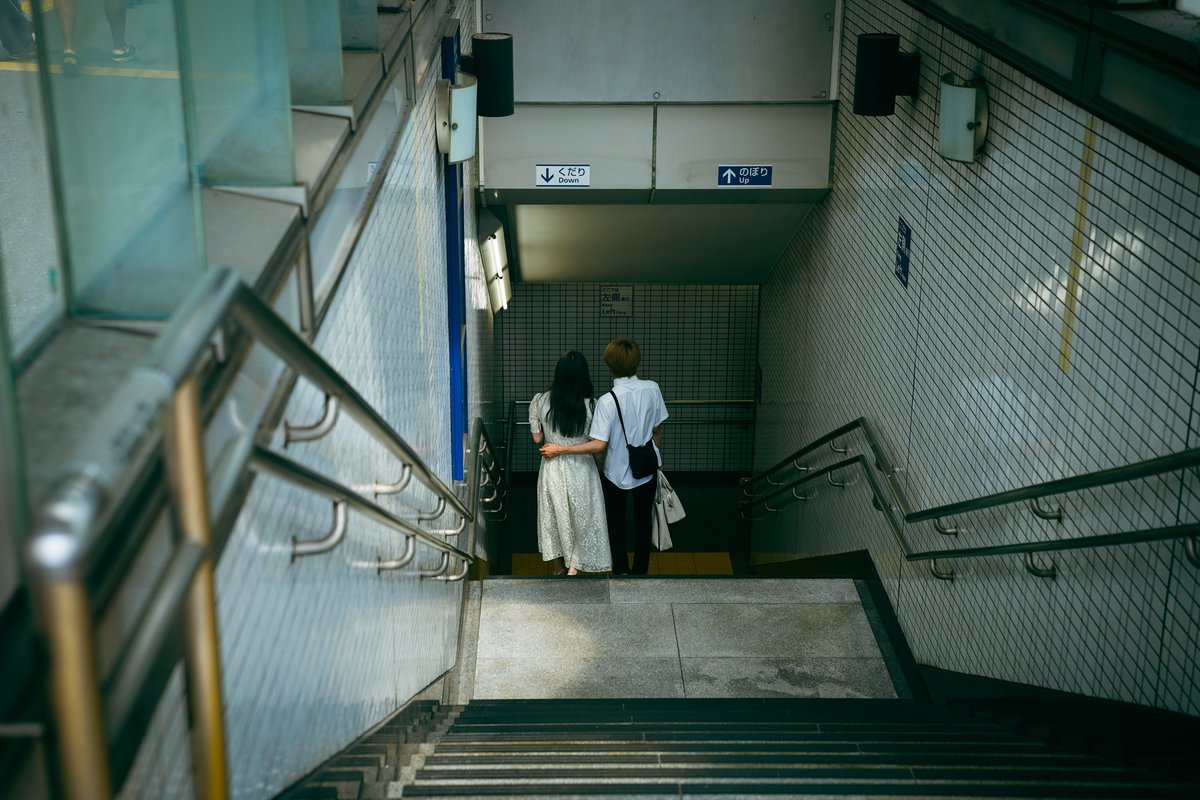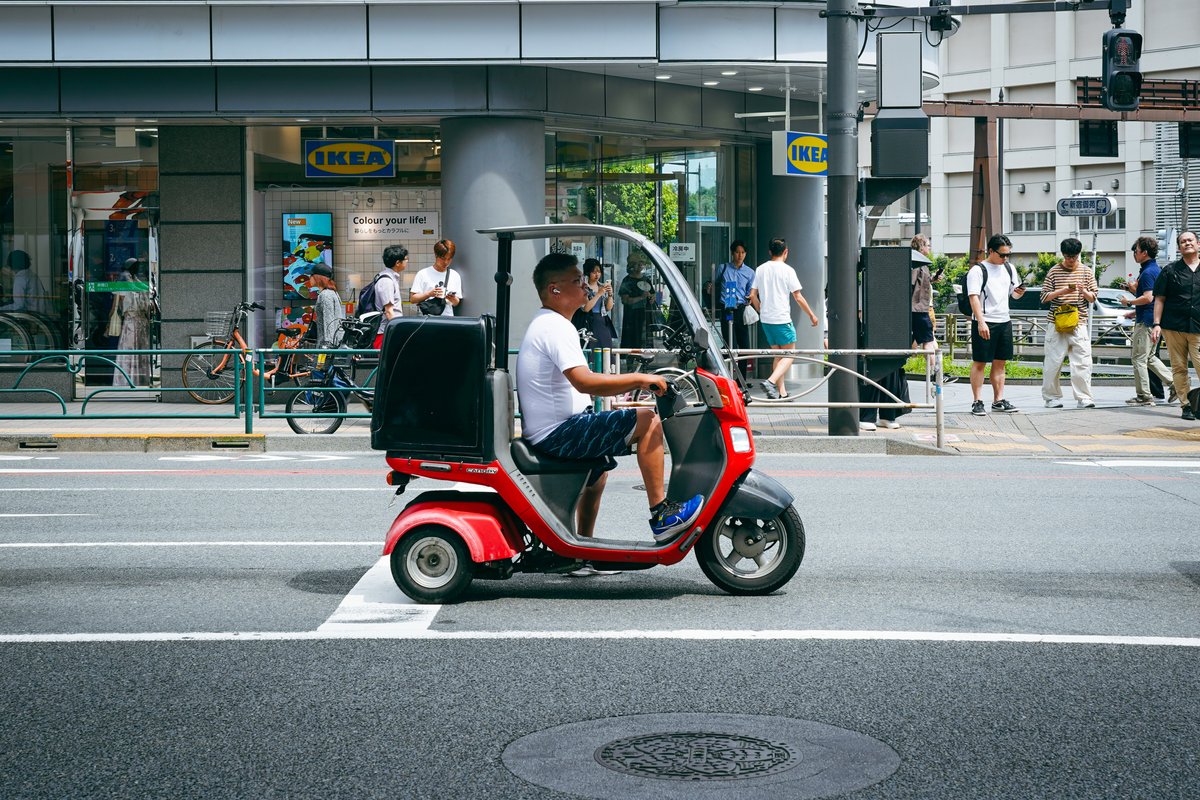
移動し続けること Expanding horizons through traveling
今週も東京にいます(この冒頭の挨拶はいつまで続けたら良いのでしょうか・・?)。
I'm still in Tokyo this week (how long should I continue with this opening greeting...?).
前回に引き続き、旅の学びをまとめていきたいと思います。 今回は、移動すること大切さについてです。
Continuing from last time, I'd like to summarize the lessons learned from traveling. This time, it's about the importance of moving around.


まず第一に、好奇心を刺激することができるということがあるかと思います。知らない土地に、数週間滞在すれば、当たり前だと思っていたことが、当たり前でないことに気がつきます。同じ場所にずっといることでは得ることができなかった、新たな視点で世界を見ることができます。それはその国・都市の文化であり、地政学であり、歴史であり。気がつくと、分野を問わず、「これはなぜなのだろうか?」とふと疑問に思い、考え、調べている自分がいるのです。それらの点(情報)は、次第に面のようになっていき、一次情報から考える能力が鍛えられると思います。もはや、普段見るニュースが、自分の思考の答え合わせになっていくように。
Firstly, I think it can stimulate curiosity. When you stay in an unfamiliar place for a few weeks, you realize that what you thought was normal isn't necessarily so. You can see the world from a new perspective that you couldn't have gained by staying in one place. This includes the culture, geopolitics, and history of that country or city. Before you know it, regardless of the field, you find yourself wondering "Why is this so?", thinking about it, and researching it. These points (of information) gradually become like a surface, and I believe it trains your ability to think from primary information. It's as if the news you usually see becomes a way to check your own thoughts.
例えば、アジアの国々を訪れると、日本とは異なる食文化や生活習慣に出会います。屋台文化が発達している国では、その背景にある歴史や経済状況について考えを巡らせる。または、旧ソ連の国々を旅すると、都市計画や建築様式の違いから、その国の歴史や価値観を読み取る。これらの経験は、私たちの視野を広げ、世界の多様性を実感させてくれます。
For example, when visiting Asian countries, you encounter food cultures and lifestyles different from Japan. In countries with a developed street food culture, you might ponder the historical and economic background behind it. Or when traveling to former Soviet countries, you can read the history and values of that country from the differences in urban planning and architectural styles. These experiences broaden our perspectives and make us realize the diversity of the world.


少し似ていますが、第二に移動することは、自分の目で確かめることにつながります。メディアで見たり聞いたりして、自分の中で思っていたイメージと、実際に行ったことで受け取った印象が違かったり。あるいは、歴史の一部にいることや、「今、ここ」に心を向けることができるのではないでしょうか。デカルトは「我思う、故に我在り」と言いましたが、見ている世界が現実であろうとなかろうと、自分で見たこと、考えたことには変わらないものがあります。別の角度で考えれば、これは自分自身のアップデートにもつながるでしょう。
Secondly, and somewhat similarly, moving around leads to seeing things with your own eyes. The image you had in your mind from what you've seen or heard in the media might be different from the impression you get when you actually go there. Or perhaps you can feel like you're part of history, or focus on the "here and now". Descartes said "I think, therefore I am," but whether the world you're seeing is real or not, there's something unchangeable about what you've seen and thought for yourself. From another angle, this could lead to updating yourself.
実際に現地を訪れることで、メディアでは伝えきれない微妙なニュアンスや雰囲気を感じ取ることができます。例えば、ニュースで政治的な緊張が報じられている国を訪れても、日常生活では人々が穏やかに過ごしている様子に驚くかもしれません。また、歴史的な出来事の舞台を実際に訪れることで、教科書では学べない臨場感や重みを体感できるでしょう。これらの経験は、僕たちの世界観を豊かにし、より深い理解と共感を育むきっかけとなるのだと思います。
By actually visiting a place, you can sense subtle nuances and atmospheres that media can't fully convey. For example, you might be surprised to see people living peacefully in their daily lives even in a country that's reported to be in political tension in the news. Also, by actually visiting the sites of historical events, you can experience a sense of reality and weight that you can't learn from textbooks. I think these experiences enrich our worldview and become opportunities to foster deeper understanding and empathy.


三点目は、数週間に1回、定期的に移動をすることで、移動することへの心理的ハードルが下がったことがあります。マインドセットの変化ですね。基本的に僕は面倒くさがりやで普段移動など全くしないのですが、困った時には、スーツケースとバックパックでどこにでもいける、どこででも住んでいけるということを身を持って学んだことで、今後、フットワークが軽くなっていくような気がします。もしかしたら、これからは移動を前提として、2拠点、3拠点生活なんかもできたら面白いのではと思っています。LCCの普及により移動のコストが下がったことに加え、自身の移動に対する心理的ハードルが下がったことで僕はますます移動しやすくなっていくでしょう。そしてそれは好循環を産んでくれるものだと願ってやみません。
The third point is that by moving regularly, once every few weeks, the psychological barrier to moving has lowered. It's a change in mindset. Basically, I'm lazy and don't usually move at all, but I've learned firsthand that in times of trouble, I can go anywhere and live anywhere with just a suitcase and a backpack. This makes me feel like I'll become more agile in the future. I'm thinking it might be interesting to live in two or three bases, assuming movement as a premise from now on. In addition to the lower cost of moving due to the spread of LCCs, the lowered psychological barrier to moving myself will make it easier for me to move more and more. And I sincerely hope that this will create a virtuous cycle.
この心理的ハードルの低下は、単に旅行がしやすくなるだけでなく、人生の様々な場面でポジティブな影響を与える可能性があると思います。例えば、仕事の面では、海外で働くことや新しいプロジェクトへの参加にも躊躇せず、チャレンジする勇気が生まれるなど。また、プライベートでも、新しい趣味や活動に挑戦する際の抵抗感が減り、より豊かな経験を積むことができるのではと期待しています。
I think this lowering of psychological barriers can have a positive impact not just on making travel easier, but in various aspects of life. For example, in terms of work, it might give you the courage to challenge yourself without hesitation to work abroad or participate in new projects. Also, in private life, I expect that it might reduce resistance to trying new hobbies or activities, allowing you to gain richer experiences.


定期的な移動は、僕たちの人生に新たな刺激と学びをもたらしてくれます。好奇心の刺激、自分の目で確かめること、心理的ハードルの低下—これらの要素が相互に作用し、私たちの視野を広げ、思考を深めてくれるのだと思います。その過程で培われた柔軟性や適応力は、急速に変化する現代社会を生き抜く上で貴重な資質となるはずです。
Regular movement brings new stimulation and learning to our lives. Stimulating curiosity, seeing things with our own eyes, lowering psychological barriers—I think these elements interact with each other to broaden our perspectives and deepen our thoughts. The flexibility and adaptability cultivated in this process should become valuable qualities for surviving in our rapidly changing modern society.
続きはまた来週!
To be continued next week!

この記事が気に入ったらサポートをしてみませんか?
